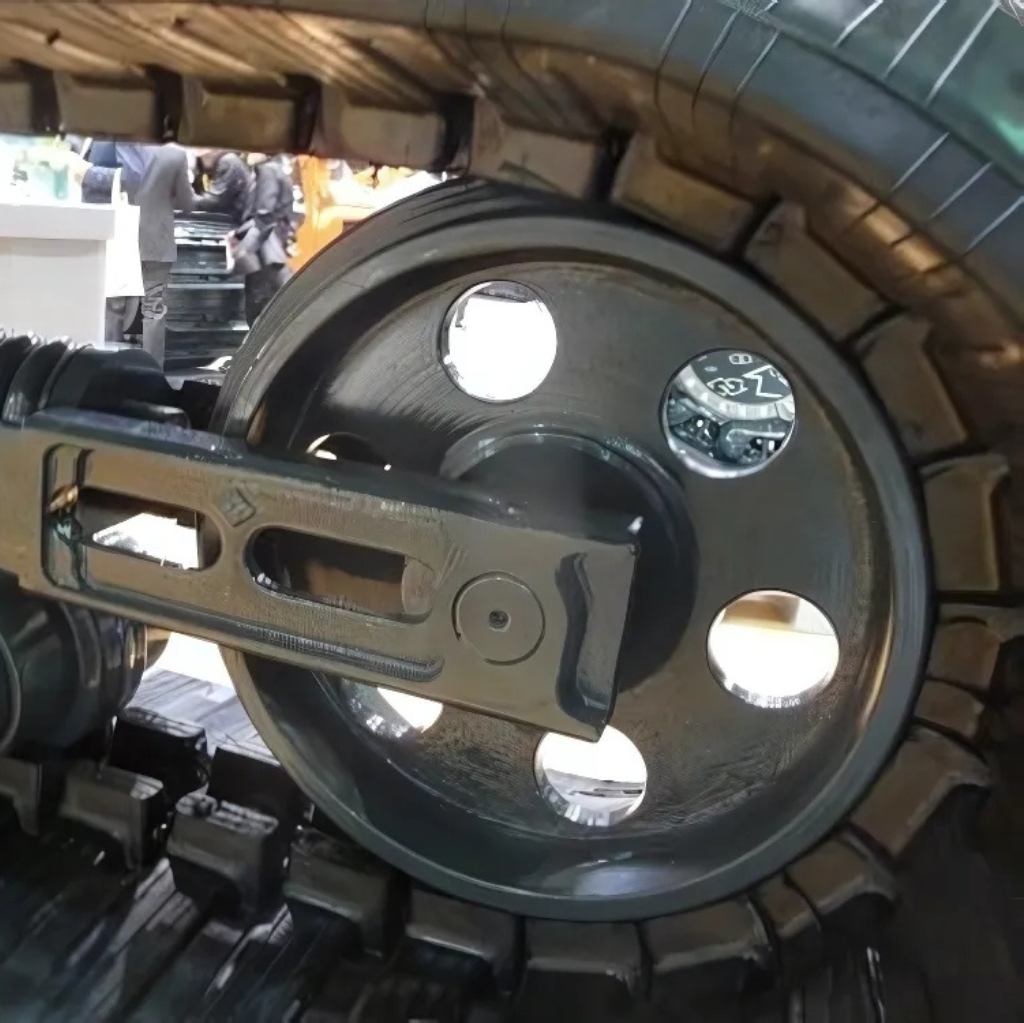
The excavator idler in Chennai is a key undercarriage part that guides the track chain, maintains proper tension, and ensures smooth movement. Positioned at the front of the track frame, it absorbs shocks, prevents misalignment, and reduces wear on the track system. Built from high-strength steel, the idler works with recoil springs and tensioners to keep the tracks stable and extend undercarriage life.
Excavator idlers guide the track chain, maintain proper tension, and stabilize movement across different terrains. Positioned at the front of the track frame, they keep the chain aligned to prevent derailment and uneven wear.
Idlers also work with the recoil spring and adjuster to balance track tension—tight enough for grip but not so tight that it causes excess friction. By absorbing shock and distributing loads, they protect the sprockets, rollers, and links from premature wear.
The drive sprocket powers the excavator’s movement by engaging the track links and pulling the track forward or backward. It handles high torque and heavy loads, making it a critical power-transmitting component.
The idler, on the other hand, does not drive motion. Instead, it guides the track, maintains proper tension, and absorbs impact, ensuring smooth operation and reducing wear on the sprocket and track chain.
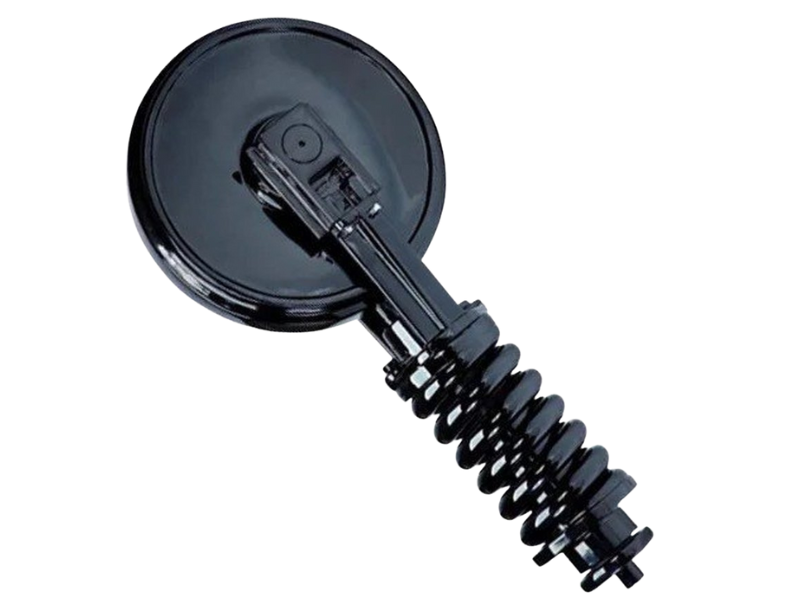
The idler’s diameter must match the machine’s track system. A correct size ensures smooth load distribution and prevents excessive wear. Worn-down diameters affect track pitch and increase stress on the chain.
Proper alignment keeps the track running straight, reducing derailment risks and uneven wear. Even minor misalignment can damage rollers, links, and sprockets.
Track tension, adjusted by the idler recoil mechanism, must be within set limits.
Too tight: causes stress, higher fuel use, and fast wear.
Too loose: leads to slapping and risk of de-tracking.
Excavator idlers are built to handle heavy shock loads and constant wear, making construction and materials critical to their performance.
Strong Steel Body – Made from cast or forged alloy steel for maximum strength and durability.
Heat Treatment & Hardening – Surfaces are quenched or induction-hardened for wear resistance, while the core remains tough to absorb impact.
An excavator idler wears over time due to constant stress, dirt, and track contact. Watch for these key signs:
Surface Wear: Flattened rim, grooves, or pitting on the running surface.
Cracks & Damage: Cracks near the hub/rim or chipped edges.
Bearing Issues: Excessive play, wobbling, grinding, or squealing noises.
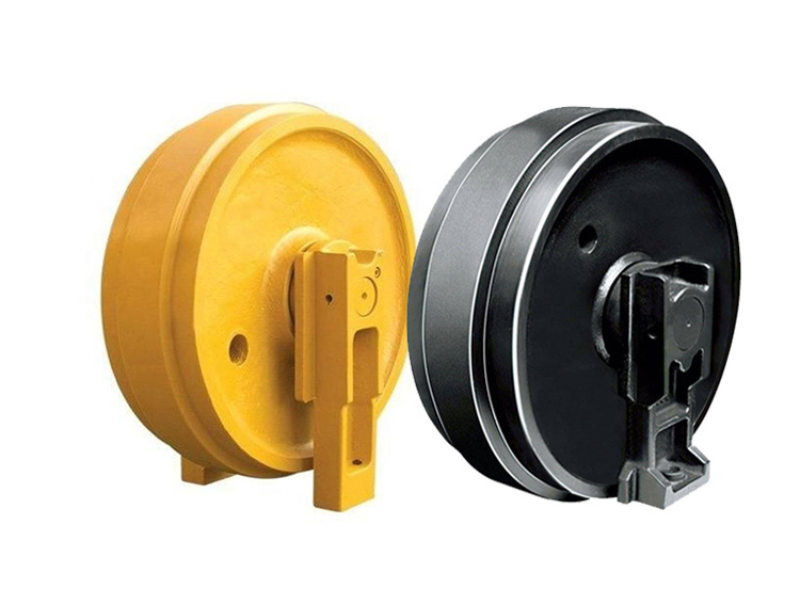
Inspect regularly: Look for cracks, leaks, and uneven wear.
Maintain track tension: Avoid overtight or loose tracks to reduce stress.
Keep clean: Clear mud, rocks, and ice to prevent abrasive damage.
The lifespan of an excavator idler depends on multiple factors, including machine usage, operating conditions, material quality, and maintenance practices. On average, a well-manufactured idler can last 4,000 to 6,000 operating hours, though this can vary significantly in different work environments.
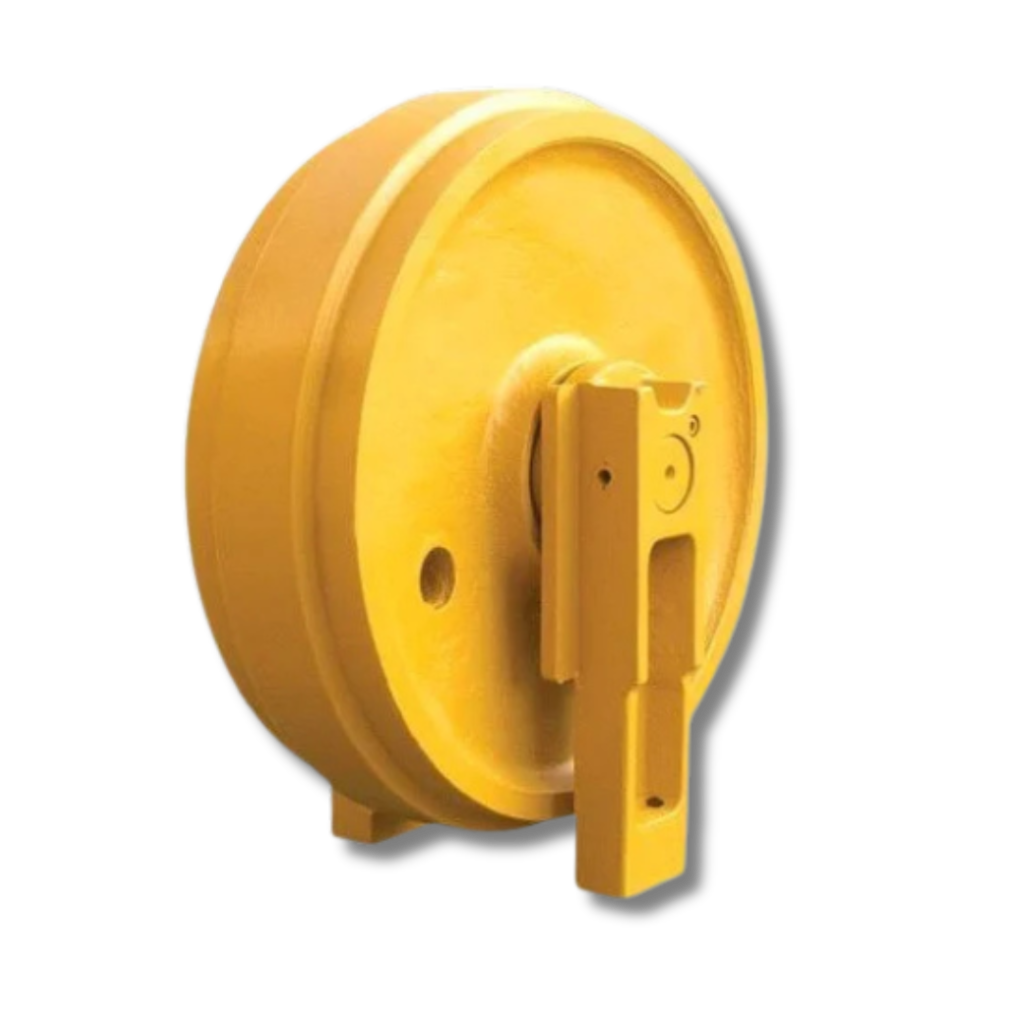
Upgrading an excavator idler is more than replacing a worn part—it’s about ensuring the right fit and long-term performance.
OEM vs. Aftermarket: OEM idlers guarantee exact fit, while aftermarket options can be cost-effective if they meet proper specs.
Correct Fit: Always match idler size, bore, and mounting with your excavator model and serial number.
Q1. What is an excavator idler?
It’s a key undercarriage part that guides and tensions the track for smooth movement.
Q2. How is it different from a sprocket?
The sprocket drives the track, while the idler guides and maintains tension.
Q3. When should I replace an idler?
If you notice cracks, abnormal wear, vibration, or poor track tension, it’s time to replace.
Q4. How long does an idler last?
Typically 4,000–8,000 hours, depending on usage and maintenance.
Q5. Can a bad idler damage other parts?
Yes, it can cause track misalignment and wear on rollers and sprockets.
Q6. How do I maintain it?
Keep track tension correct, clean debris, and inspect seals regularly.
Q7. Are idlers universal?
No, they’re model-specific. Always check compatibility.
Q8. OEM or aftermarket—which is better?
OEM guarantees fit and quality; good aftermarket options can be cost-effective.
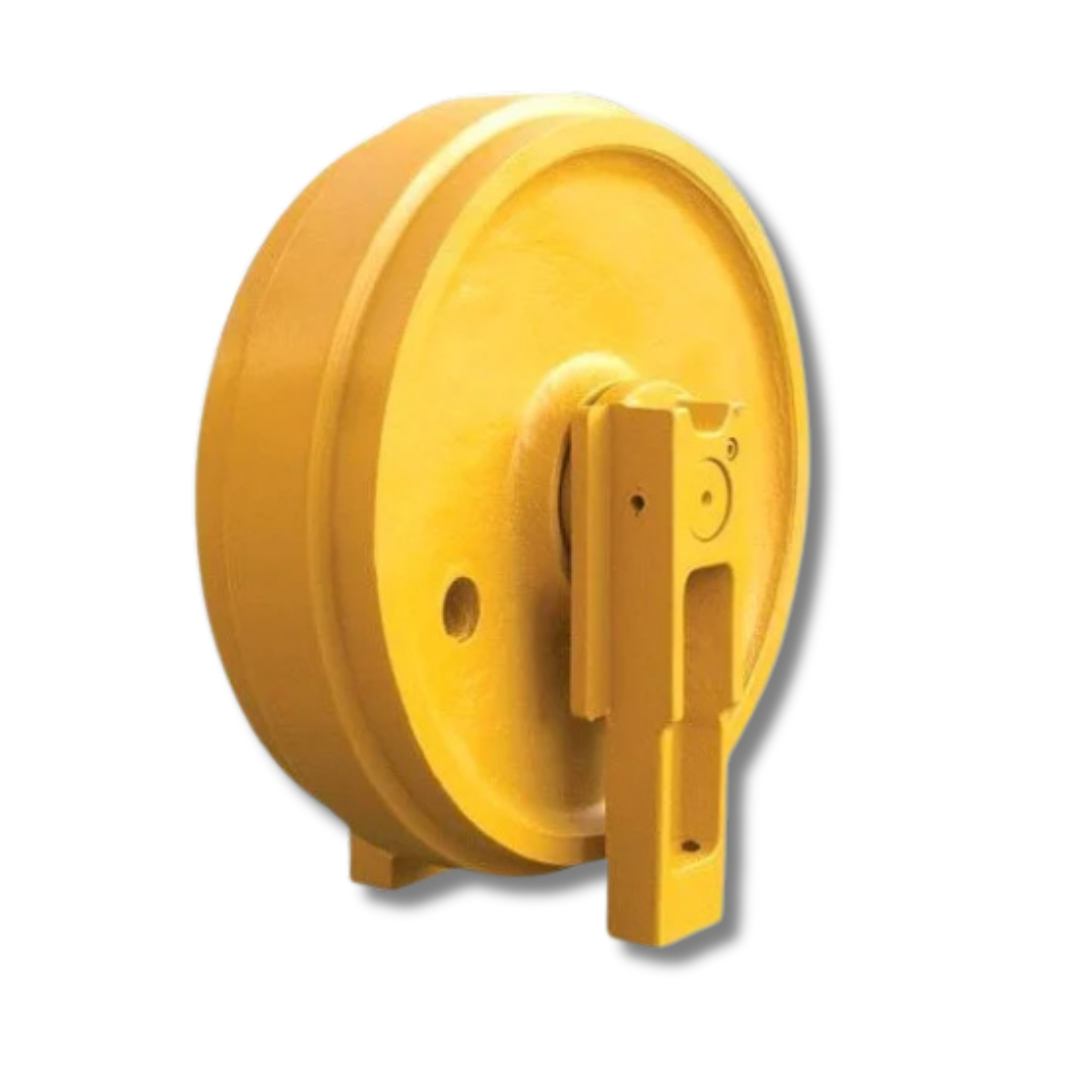
Excavator Rock Bucket | Excavator Skeleton Bucket | Excavator Trapezoidal Bucket | Excavator Soil Bucket | Excavator Loader Bucket | Excavator Single-Shank Ripper | Excavator Triple-Shank Ripper | Excavator Track Link Assembly | Excavator Tooth Points | Excavator JCB Teeth & Side Cutter | Excavator Idler | Excavator Sprocket | Excavator Lower Roller | Excavator Undercarriage | Excavator Track Group | Excavator Bolts | Excavator Rock Bucket in Chennai | Excavator Skeleton Bucket in Chennai | Excavator Trapezoidal Bucket in Chennai | Excavator Soil Bucket in Chennai | Excavator Loader Bucket in Chennai | Excavator Single-Shank Ripper in Chennai | Excavator Triple-Shank Ripper in Chennai | Excavator Track Link Assembly in Chennai | Excavator Tooth Points in Chennai | Excavator JCB Teeth & Side Cutter in Chennai | Excavator Idler in Chennai | Excavator Sprocket in Chennai | Excavator Lower Roller in Chennai | Excavator Undercarriage in Chennai | Excavator Track Group in Chennai | Excavator Bolts in Chennai | Excavator Rock Bucket in India | Excavator Skeleton Bucket in India | Excavator Trapezoidal Bucket in India | Excavator Soil Bucket in India | Excavator Loader Bucket in India | Excavator Single-Shank Ripper in India | Excavator Triple-Shank Ripper in India | Excavator Track Link Assembly in India | Excavator Tooth Points in India | Excavator JCB Teeth & Side Cutter in India | Excavator Idler in India | Excavator Sprocket in India | Excavator Lower Roller in India | Excavator Undercarriage in India | Excavator Track Group in India | Excavator Bolts in India
TEAM. All Rights Reserved. Developed by Pixel Tech.